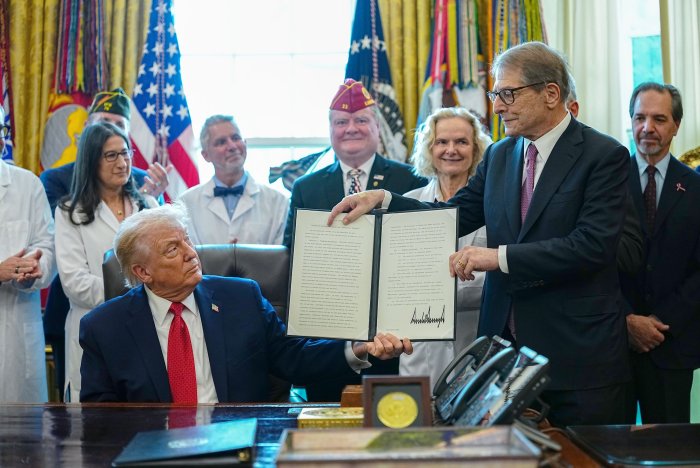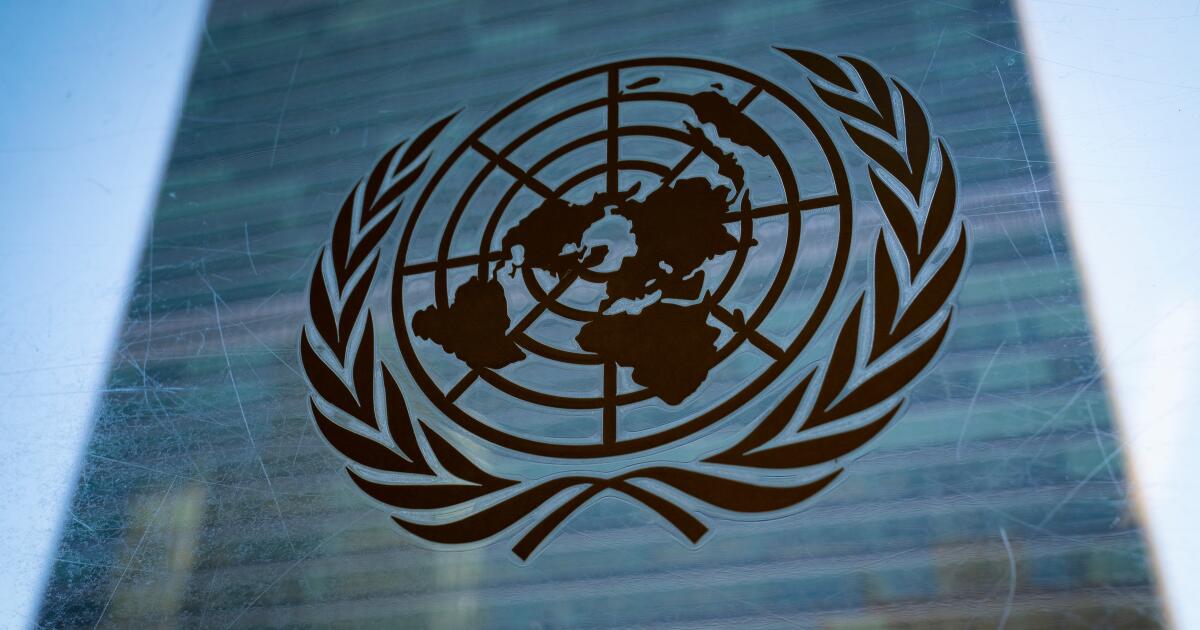Trump withdraws U.S. from dozens of international organizations, treaties
Jan. 7 (UPI) — President Donald Trump said Wednesday night that he will withdraw the United States from dozens of international organizations and treaties, escalating the U.S. policy shift from multilateral engagement under his second administration.
The 66 international organizations, conventions and treaties affected were those deemed “contrary to the interests of the United States,” according to a statement from the White House.
The withdrawal was initiated via a presidential memorandum, which names 35 non-United Nations organizations and 31 U.N. entities. Among them are the landmark U.N. Framework Convention on Climate Change, established in 1992, and several others that fight climate change, the U.N. Entity for Gender Equality and the Empowerment of Women, U.N. Oceans and the U.N. Alliance of Civilizations.
“The Trump administration has found these institutions to be redundant in their scope, mismanaged, unnecessary, wasteful, poorly run, captured by the interests of actors advancing their own agendas contrary to our own, or a threat to our nation’s sovereignty, freedoms and general prosperity,” Secretary of State Marco Rubio said in a statement.
“President Trump is clear: It is no longer acceptable to be sending these institutions the blood, sweat and treasure of the American people, with little to nothing to show for it.”
Since returning to the White House in January, Trump has used his executive powers to expunge left-leaning ideology and initiatives from U.S. domestic and foreign policy. Rubio argued that the dozens of organizations and treaties the United States was exiting are those where progressive ideology “detached from national interests.”
“From DEI mandates to ‘gender equity’ campaigns to climate orthodoxy, many international organizations now serve a globalist project rooted in the discredited fantasy of the ‘End of History,'” he said.
“These organizations actively seek to constrain American sovereignty,” he continued. “Their work is advanced by the same elite networks — the multilateral ‘NGO-plex’ — that we have begun dismantling through the closure of USAID.”
A fact sheet from the White House claims that many of the organizations named Wednesday “promote radical climate policies, global governance and ideological programs that conflict with U.S. sovereignty and economic strength.”
“By exiting these entities, President Trump is saving taxpayer money and refocusing resources on America First policies.”
Trump has frequently rallied against international organizations that have stood counter or even criticized his policies. He has twice removed the United States from the World Health Organization, first during his first term and again on his first day in office of his second after President Joe Biden reinstated the United States’ membership in the world’s leading health organization.
The same day he pulled the United States from the WHO he directed the withdrawal from the U.N. Framework Convention on Climate Change, also known as the Paris Agreement.
He has also twice withdrawn the United States from The U.N. Educational, Scientific and Cultural Organization, better known as UNESCO. He also withdrew the United States from the U.N. Human Rights Council and prohibited future funding to the U.N. Relief and Works Agency for the Near East.
During his first term, he withdrew the United States from the landmark Obama-era multinational accord that aimed to prevent Iran from gaining a nuclear weapon and the Intermediate-Range Nuclear Forces Treaty.
“I’ve always felt that the U.N. has tremendous potential. It’s not living up to that potential right now — it really isn’t — hasn’t for a long time,” Trump said Wednesday before signing the memorandum in the Oval Office.
“There are great hopes for it, but it’s not being well run, to be honest.”


